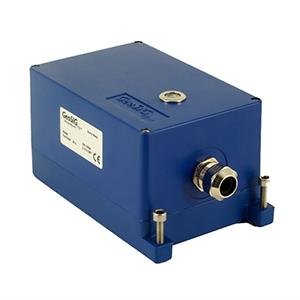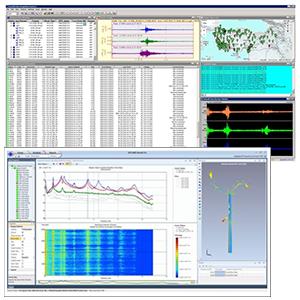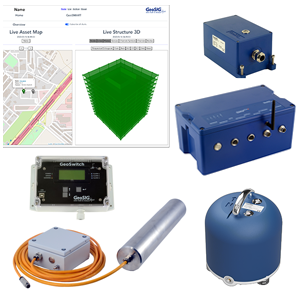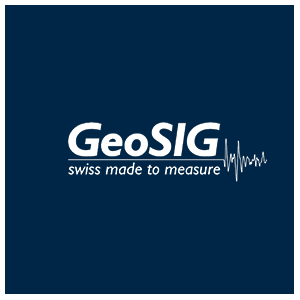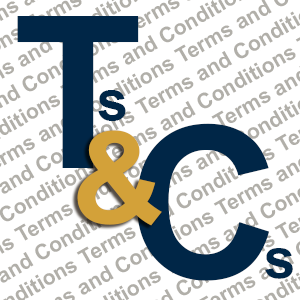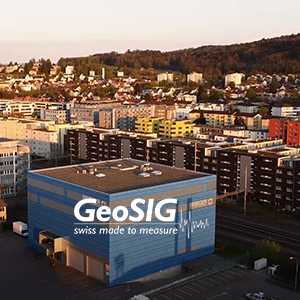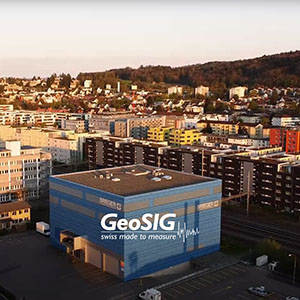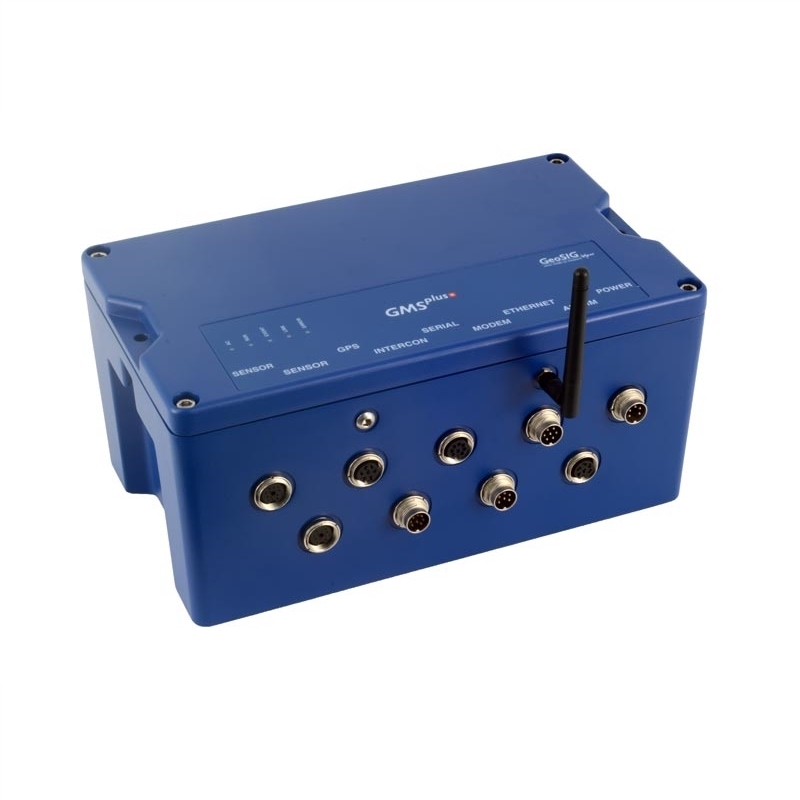GeoSIG GMSplus - GMSplus6
Key Features
- Second generation of NetQuakes Recorder
- 3 or 6 channels, up to 1000 sps sampling rate*
up to 15 channels using digital sensors - Low noise individual 24-bit Δ−Σ ADC per channel
- Internal built-in and/or external sensors
- Wired Ethernet, Wi-Fi** and Serial links
- Smart NTP timing, GPS time base, or time synchronisation via radio channel or cable
- Enhanced connectivity via landline modems, 3G cellular devices and satellite links
- Recording to SD or CF cards, up to 128 GByte
- USB interface for external storage and communication devices**
- Continuous data recording to ringbuffers
- Flexible configuration of multiple triggers
- Simultaneous data streaming to several clients
- On board data processing and evaluation
- Rugged aluminium housing with levelling base plate for easy installation
- Configuration and status monitoring via Web Interface compatible with Smartphones
- Simple and secure communication over Internet with full remote management
- Internal battery, low power consumption
- Alarm output with up to 4 relays flexibly configurable for different types of events**
- Easily configurable interconnected networks with common timing and triggering
**optional
Click here for the GMSplus response files in the IRIS NRL library
GMSplus is the ground breaking late generation of the GeoSIG Measuring Systems with high performance, excellent operational flexibility and enhanced connectivity. The unit is based on the GMS technology of NetQuakes Seismographs, which are developed in close coordination with USGS, and deployed in high quantities in North America establishing the NetQuakes network.
It includes an Ethernet connection and optionally a Wi-Fi (b/g/n) module to ensure fast and reliable data transfer. Both wired and wireless network interfaces can be used simultaneously. Its design and efficiency makes it the first choice for any application requiring seismic instruments. With its optimized installation, operation and maintenance philosophy, the GMSplus offers the real possibility to implement high density arrays with total costs at a small fraction of conventional strong-motion seismograph networks.
The instrument’s software processes data in real time. If triggered by a seismic event, GMSplus calculates a number of Event Parameters and reports them to a data centre immediately. GMSplus is a self-contained instrument and is equipped with an uninterruptible power-supply, which provides more than 24 hours autonomy. The GMSplus uses an “Intelligent Adaptive Real Time Clock” (IARTC) with self-learning temperature compensation, improving the accuracy of the RTC or TXCO significantly. The IARTC is able to synchronize with GPS or NTP to UTC timing to provide high timing accuracy. Optionally the unit itself can act as an NTP server as well.
The instrument can be locally connected to a laptop through its ports for configuration, testing or data retrieval. Same functions are available remotely as well. Wired or Wireless Interconnected Network option enables the use of several units together in a time and trigger synchronised manner. Optionally the USB support enables the user to connect various external devices such as high capacity storage devices, 3G modems, etc.
Applications
It includes an Ethernet connection and optionally a Wi-Fi (b/g/n) module to ensure fast and reliable data transfer. Both wired and wireless network interfaces can be used simultaneously. Its design and efficiency makes it the first choice for any application requiring seismic instruments. With its optimized installation, operation and maintenance philosophy, the GMSplus offers the real possibility to implement high density arrays with total costs at a small fraction of conventional strong-motion seismograph networks.
The instrument’s software processes data in real time. If triggered by a seismic event, GMSplus calculates a number of Event Parameters and reports them to a data centre immediately. GMSplus is a self-contained instrument and is equipped with an uninterruptible power-supply, which provides more than 24 hours autonomy. The GMSplus uses an “Intelligent Adaptive Real Time Clock” (IARTC) with self-learning temperature compensation, improving the accuracy of the RTC or TXCO significantly. The IARTC is able to synchronize with GPS or NTP to UTC timing to provide high timing accuracy. Optionally the unit itself can act as an NTP server as well.
The instrument can be locally connected to a laptop through its ports for configuration, testing or data retrieval. Same functions are available remotely as well. Wired or Wireless Interconnected Network option enables the use of several units together in a time and trigger synchronised manner. Optionally the USB support enables the user to connect various external devices such as high capacity storage devices, 3G modems, etc.
Applications
- Broadband Seismic, Earthquake and Structural measuring and monitoring
- Real-time Seismology for Freefield and Urban Areas
- High Density Earthquake Monitoring Networks
- Shake / Hazard Mapping based on Instrumental Data
- Earthquake Early Warning and Rapid Response
- Damage Estimation, Disaster Management
- Seismic Alarm and Safe Shutdown
- Ambient Vibration Testing (optionally fully wireless)
- Induced Vibration Monitoring and Notification
- Building Code Compliant Instrumentation
-
Set-up and Configuration
- An intuitive web interface is available for easy configuration with any web browser. Alternatively the configuration file in XML format can be edited on site through the instrument console, exchanged by replacing the memory card, remotely from a server or through SSH. Even if the configuration file can be manually edited at any time, a tool is provided to edit it securely.
-
Data Analysis
- The GeoDAS software provides basic data evaluation in the field meeting the requirements of most scientific and engineering applications. Optionally GMSplus can perform certain analyses onboard.
-
Sensor
- Internal: GMSplus can include select GeoSIG sensors internally. In that case the model name changes accordingly and the sensor levelling is achieved via the three levelling screws of the single bolt mounted base plate of the GMSplus.
External: All GeoSIG sensors and any other third-party sensors with following specifications can be connected to GMSplus as external sensor(s): - Sensor output:
- ±2.5 V or ±10 V; differential or single-end
- Power to sensor:
- 15 VDC / 600 mA
-
Digitizer
- Channels:
- 3 or 6 optionally up to 15 using AC-7xD / AC-4xD digital sensors (max. 4 sensors)
- A/D conversion:
- 24 bit D-S converters individual for each channel
- DSP:
- 32 bit output word length
- Dynamic range:
- 146 dB (per bin @ 1 Hz rel. full scale rms)137 dB @ 50 sps
- Sampling rate:
- 1000**, 500, 250, 200, 100, 50 sps per channel
- Max. bandwidth:
- DC to 250 Hz, optionally DC to 500 Hz
- Anti Aliasing Filter:
- Analog and digital FIR (finite impulse response)
-
CPU
- Processor:
- ARM 400 MHz
- RAM:
- 64 MByte
- Operating System:
- GNU/Linux
-
Triggering
- Several Trigger Sets can be defined in the instrument. Each set can be flexibly configured regarding the source of trigger, main and advanced trigger parameters, trigger processing and selected channels for storage. A voting logic based on the monitored channels can be defined.
-
Trigger Filter
- Fully independent high-, low- or bandpass trigger filters can be configured.*
-
Level Triggering
- User adjustable threshold.*
-
STA/LTA Triggering
- User adjustable STA / LTA values and STA/LTA trigger and detrigger ratio.
-
Event Recording
- Pre-event memory:
- 1 to 720 seconds, typical
- Post-event duration:
- 1 to 7200 seconds, typical
-
Event Summary and Parameters
- Content:
- PGA, PGV, PGD, SA (at 0.3, 1, 3 Hz)
- Transmission delay:
- User defined from trigger time
-
Ring Buffer
- Usage:
- User can request an event from any period of the ring buffer by specifying the start time/date and the duration from the console or remotely from a server
- Method:
- Ringbuffer files with configurable duration which can be uploaded automatically to data server.
-
Data Stream
- Protocol/Compatibility:
- GSBU, SeedLink, (Earthworm compatible) to earthworm
-
Storage Memory
- Size and Type:
- 8 GByte Removable SD Card, optionally Compact Flash Card higher capacity up to 128 GByte on request FAT32 or EXT4 formatted
- Management:
- Intelligent management of memory card capacity using policies as per file type and ring buffer capacity specification.
- Recording format:
- miniSEED with extended information encapsulated into blockette 2000
- Estimated Capacity:
- Sampling rate [sps] x 0.4 [MB / day / 3 channel](example: 40 MByte / day / 3 channel @ 100 sps)typical, since the data is compressed, capacity depends on the context of the data.
-
Self Test
- Permanent self monitoring of hardware and software components without affecting their normal operation.
Mbr> User-configurable periodical state of health (SOH) report based on comprehensive test of instrument, which can be requested at any time.
User-configurable periodical sensor test.
-
Time Base
- Internal:
- Intelligent Adaptive Real Time Clock (IARTC)
- External:
- NTP, optionally GPS, Wired or Wireless Interconnection
- Standard TCXO accuracy
- - ±0.5 ppm (15 s/year) @ +25 °C
- ±2.5 ppm (75 s/year) @ -10 to +50 °C
- Optionally higher accuracy TCXCO’s available. - Accuracy after learn:
- < ±0.5 ppm (15 s/year or 2 ms/h)
- Accuracy with NTP:
- < ±4 ms typical, assuming reasonable access to NTP servers
-
Power Supply
- Input voltage:
- 15 VDC (12.5 - 18 VDC)
optional 9 - 36 or 18 - 75 VDC
optional 90 - 260 VAC / 50 - 60 Hz to 15 VDC
switched UL approved external power block - Power consumption:
- - 130 mA @ 12 VDC for 3 channels
- 200 mA @ 12 VDC for 6 channels - Internal battery:
- optional 7.2 Ah for > 24 h autonomy with intelligent charger, higher autonomy is optionally available with external batteries
-
Indicators
- Green
- Active Charge LED
- Green
- Run/Stop LED
- Yellow:
- Event/Memory LED
- Blue:
- Network link/Traffic LED
- Red:
- Warning/Error LED
-
Communication
- Configuration, Data Retrieval***:
- Via Ethernet, Wi-Fi, Serial line, Console, or directly via removable memory card.
- Network requirements:
- Fixed or Dynamic IP on Ethernet LAN and/or internet connection with Ethernet interface optional OpenVPN Wi-Fi (b/g/n) network with WEP, WPA, WPA2 security and Enterprise Mode
- Security:
- GeoDAS proprietary protocol over SSL checksum and software handshaking
- Serial ports:
- 2 ports standard, + 3 ports optional
- Baud rates:
- Console: 115200 baud serial stream: 38400, 57600, 115200 Baud Alarm / Seismic Switch / Warning / Notification option
- Alarms:
- 3 independent or 4 common relay contacts for trigger alarm and/or error SMS notification is optionally available
- Alarm levels:
- Configurable based on event triggers (NO or NC selectable during order)
- Relay Hold-On:
- 1 to 60 seconds(User programmable)
- Capacity:
- The contacts are suitable for a low voltage control. In case large load must be switched then external relays should be implemented
- Max voltage:
- 125 V / 250 mA
-
Interconnected Network Option
- Wired (Common Time and Trigger) or Wireless(Common time) and trigger Interconnection network, providing distributing GPS-grade time precision synchronisation among several units is optionally available. Common Time and Trigger alternatively can be performed over the Wired/Wi-Fi network.
-
Modem Option
- External modems of different types, including cellular 3G/4G modems, are optionally available.
- Operational temperature:
- -20 to +70 °C*
- Storage temperature:
- -40 to +85 °C*
- Humidity:
- 0 to 100 % RH (non condensing)
- MTBF:
- > 500’000 hours
-
Housing
- Type:
- Cast aluminium housing
- Size:
- 296 x 175 x 140 mm (W x D x H)
- Size with base plate
- 296 x 225 x 156 mm (W x D x H)
- Weight:
- 4.7 kg (optional < 4 kg)
0.3 kg internal sensor, 2.6 kg battery
1.3 kg base plate, ask for other options - Protection:
- IP65 (NEMA 124), optionally IP67 (NEMA 6)
- Mounting:
- Base plate with single bolt, surface mount. When base plate levelled and fixed, GMSplus can be replaced without re-levelling.
- Easy Transport:
- Optional portability accessories are available to facilitate short term measurements.
-
GMSplus series are produced in different types to suit particular specifications or regulations. Specifications mentioned here may be different among different types.
*use of an internal battery may degrade this specification
**only for 3 channels instrument
***Retrieved data can be in the following formats depending on transmission, software and storage method used: miniSEED, DAT, ASCII, SEISAN, SUDS, SAC, SEG-2, Matlab, Artemis.
****Specifications subject to change without notice






